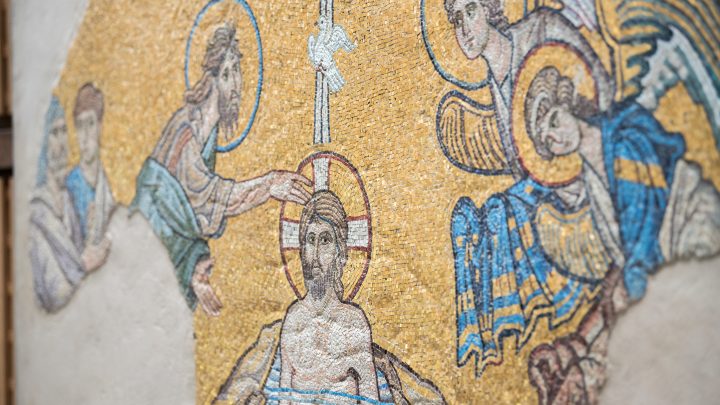An Offering from the Christian Unity and Interreligious Relationships Team
The Week of Prayer for Christian Unity takes place this year from January 18-25. The theme is “Do You Believe?” and is based on Jesus’ conversation with Martha in John 11: “I am the resurrection and the life. Those who believe in me, even though they die, will live, and everyone who lives and believes in me will never die. Do you believe this?”
The theme was chosen in recognition of the 1700th anniversary of the First Council of Nicaea (325), at which the words “I believe” were chosen to anchor the Creed as an instrument of universal Christian unity. For each day during this Week of Prayer for Christian Unity, the members of the Christian Unity and Interreligious Relationships (CUIR) committee will share a series of devotions based on the statements in the Nicene Creed.
You can sign up to receive these devotions each morning in your email or view them on our website.
Day 3: We believe in one Lord, Jesus Christ, the only Son of God, eternally begotten of the Father, God from God, Light from Light, true God from true God, begotten, not made, of one Being with the Father; through him all things were made.
“Do not put your trust in princes, in mortals, in whom there is no help.”
Psalm 146:3
As the Council of Nicaea sought to bring about unity in the Church, the primary obstacle was the existence of differing beliefs about the nature of Christ. Was it homoiousios, as Arius argued, that the Father and the Son were of a similar nature and essence, or was it the belief asserted by Athanasius, that it was homoousius, that the Father and Son were of the same nature and essence? This was (and in some corners of the Church, continues to be) the most controversial question.
However, the boldest and most provocative statement in the Nicene Creed might be the words that begin this portion: “We believe in one Lord, Jesus Christ….” In the days of Christianity’s formation, the people were living in the Pax Romana, or the Peace of Rome. It was a long period of relative peace and prosperity in the empire, and the achievement of this time of peace was said by some to be a miracle, and the emperors were worshiped as if they were demi-gods. When they were born, missives were put forth to tell the “Good News” (or gospel) that they had been born. While they ruled, the coins of the empire bore their image and read, “Caesar is Lord.” In other places the words even read, “Caesar is Lord and Savior.”
The early Christians did not come up with the language, but they coopted it to make their own claims about the Good News and about who is Lord and Savior; and in doing so, our ancestors merely passed on to us a very challenging political reality: no matter who is in charge and no matter what is going on, there is only one Lord and King – Jesus the Christ, who God placed “far above all rule and authority and power and dominion” (Ephesians 1:21). As the psalmist describes how our Lord uses his power, we see a stark contrast to earthly leaders (Psalm 146:8-9):
The Lord sets the prisoners free;
the Lord opens the eyes of the blind.
The Lord lifts up those who are bowed down;
the Lord loves the righteous.
The Lord watches over the strangers;
the upholds the orphan and the widow,
but the way of the wicked he brings to ruin.
To state the obvious, this is far removed from how we see power employed by our political leaders, who cast their lot with for-profit prisons, demonize the strangers, and beat down those who are already cast down. For those who claim the name of Christ, our faith calls for all other allegiances and loyalties fall in a very distant second place. We may love our country, but if we are going to be faithful to Christ, that love comes as the fruit of loving God with all of our hearts and loving our neighbors as ourselves. We owe our loyalty first and foremost to the Kingdom of Heaven; and because of that, we exist in a way as aliens and sojourners. It is not an either-or existence, though. We have a kind of dual citizenship, which means we simply need to be able to keep our heads (and hearts) about us as we stand in the tension.
Prayer: O God, who exists eternally in the divine unity of the Trinity, we pray for an end to the divisions among Christians: that we may work together in bringing about healing and promote reconciliation as signs of the reign of Christ our Lord. Amen.
Shawn Blackwelder is the Lead Pastor of Genesis UMC in Cary and the Chair of CUIR.
Photo by Albin Hillert, 4 October 2019, Geneva, Switzerland: Ecumenical Centre, Geneva.

